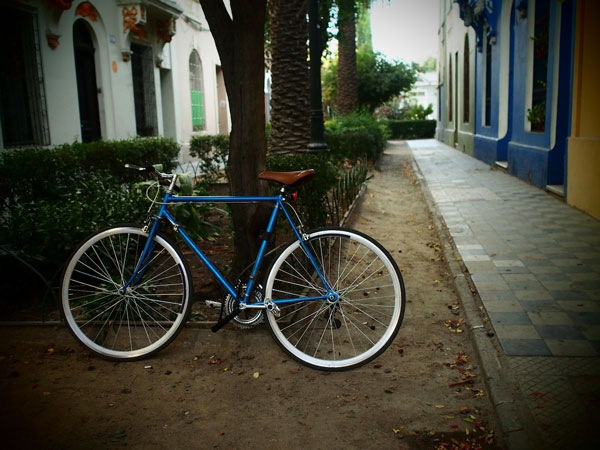In Chile people always talk about having to cambiar el chip, or change the chip in their brains to switch from one language to another. As though by making a slight key-turning motion by the side of their head, it is actually possible to activate, for example, the English and deactivate the Spanish. I think in English this would best be described as changing channels or switching speeds.
At any rate, this, they say, is what’s necessary (plus years of study and/or immersion) to be able to switch from one language to the next. I’m not sure I have a switch per se, or if I do, I don’t know where it is. I’m not one of those people who says things like “please pass the… oh wait, how do you say queso in English?” There are expressions that come more easily in Spanish than in English, but usually only because they are more economical, such as tener ganas, which is to have a hankering, or to feel like doing something. It’s so much more compact and conversational in Spanish. Because speaking of hankering (and queso), it just reminds me of that cartoon from when I was a kid that proclaimed, “I hanker for a hunka, a sliver, slice or chunka, I hanker for a hunka… cheese.”
But (and as usual), I digress. My chip changer seems to be on the blink, which is why the other day in the parking lot of my niece’s play rehearsal, I found myself laughing at the sign that said “Evita Saturday.” Evitar, you see, is to avoid, as in evite accidentes (avoid accidents), which you are exhorted to do at the entry to a couple of tunnels in Santiago. Evita Saturday, is of course, not telling you to avoid Saturday (though why would you want to?) The message is that the musical Evita will be performed on Saturday. My niece, being only eight is in a different, more age-appropriate production.
And not to be outdone, my toddler nephew was wearing a shirt with a truck on it two days ago, with the parts of the truck labelled. And there was an arrow that said “tire.” And I thought, “pull what?” (tirar is to pull in Spanish).
So as you can see, my chip changer is on the fritz. As in broken, not the Chilean sandwich chain with the giant rolls ‘n fillings and meat and avocado and stuff. That would be, as they say, a whole nother problem. Which some would call delicious, though I wouldn’t know.
(foto from mall center curicó website)











I think that one of my biggest problems with language learning is that I’m unable to “change the chip”. My brain is always somewhere in the middle, forgetting simple words, making up others that only exist inside my brain and using phrases that make no sense, because they belong to a different language (without realizing I’m actually translating and not using them in their proper context)
And by “your problem learning languages” you mean your ability to speak English like a native when it is your second language? you’ve GOT to be kidding! What other languages are you talking about?
Oh Eileen- I know this problem, and I know it well! 🙂 The funny thing is, when I play scrabble with friends, I always see possible words in more than one language- and then I get all frustrated that I can’t use the Latvian or the French in the English Scrabble! Would it work to play scrabble in two languages, if both players spoke both languages? Hmmm… 🙂
My problem is that my “chip” has two settings – foreign or English. When I try to speak Spanish, I end up throwing in Swedish or French without even realizing, and similarly for the other two languages. It’s like my brain just knows it’s not supposed to be speaking English, so it picks whatever word it can find that’s not English.
You know, my chip is a little off in situations like you have described too. I was thinking that (as in most every thing) it is a matter of context. When you get a sentence or an entire conversation, it is much more likely that you will shift naturally. For scattered words, like signs, it seems to be more risky that you will associate it with what comes easier to you at that moment, which may not be what it is supposed to be!
I like your blog, by the way!